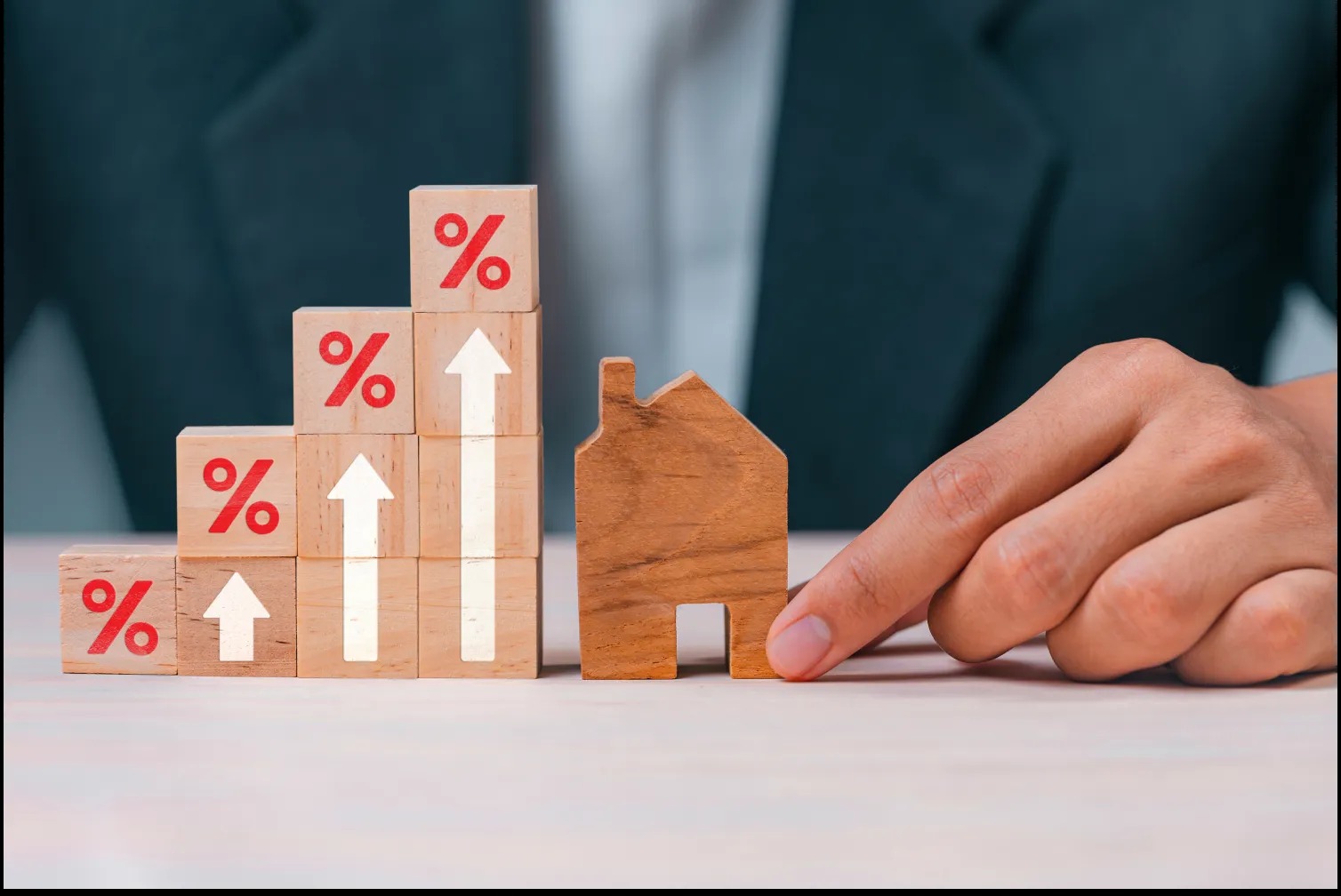

Finance
How Do You Determine Home Equity
Published: January 15, 2024
Learn how to determine your home equity in the world of finance. Discover the calculation methods and tools to assess your property's value and potential returns.
(Many of the links in this article redirect to a specific reviewed product. Your purchase of these products through affiliate links helps to generate commission for LiveWell, at no extra cost. Learn more)
Table of Contents
Introduction
Welcome to the world of home equity! If you’re a homeowner, understanding home equity is crucial for making informed financial decisions. Whether you’re planning to renovate your home, consolidate debt, or simply want to leverage the value of your property, having a clear understanding of home equity is essential.
Home equity is the value of your property that you truly own, beyond the amount you owe on your mortgage. It represents the difference between the market value of your home and the outstanding mortgage balance. As you continue making mortgage payments and your property’s value appreciates, your home equity increases.
In this article, we’ll explore how home equity is determined, the factors that influence it, and the importance of understanding and utilizing your home equity effectively. We’ll also provide strategies to increase your home equity and discuss the risks and considerations associated with tapping into it.
Whether you’re a first-time homeowner or have owned your property for years, this article will serve as a comprehensive guide to help you navigate the intricacies of home equity. So, let’s dive in and discover how you can determine and leverage your home equity!
What is Home Equity
Home equity is the portion of your property that you truly own. It’s the difference between the current market value of your home and the outstanding balance on your mortgage. Simply put, it’s the value of your property that isn’t encumbered by your loan.
For example, let’s say your home is currently valued at $400,000 and you still owe $250,000 on your mortgage. In this case, your home equity would be $150,000 ($400,000 – $250,000).
Home equity is like a savings account that grows over time as you make mortgage payments and your property appreciates in value. It can act as a valuable financial resource that you can tap into when needed.
One of the key benefits of home equity is that it can be used as collateral for loans, which typically have lower interest rates compared to other types of debt such as credit cards or personal loans. This makes home equity an attractive source of funding for major expenses, such as home improvements, education expenses, or debt consolidation.
Additionally, home equity can also provide a measure of financial security. As your home equity increases, you build a cushion of value that can protect you against unexpected financial challenges or even serve as an asset to pass on to future generations.
It’s important to note that home equity is not a liquid asset like cash in a savings account. You cannot access it instantly, and it usually requires applying for a loan or a line of credit secured by your property. However, having substantial home equity can provide flexibility and financial stability.
In the next section, we’ll explore how home equity is determined and the various factors that influence its value.
How is Home Equity Determined
Home equity is determined by taking into account several factors, including the market value of your property and the outstanding mortgage balance. Let’s break down the process of determining home equity:
- Market Value: The first step in calculating home equity is determining the current market value of your property. This can be done by assessing recent sale prices of similar homes in your area or by consulting a professional appraiser. Keep in mind that the market value of your home can fluctuate based on various factors such as location, local market trends, and supply and demand dynamics.
- Outstanding Mortgage Balance: The next factor to consider is the remaining balance on your mortgage. This is the amount of money you still owe to your lender. The outstanding balance decreases over time as you make monthly mortgage payments. It’s important to note that other liens or loans on your property, such as home equity loans or lines of credit, should also be accounted for in calculating your outstanding mortgage balance.
- Calculation: Once you have determined the market value of your home and the outstanding mortgage balance, you can calculate your home equity by subtracting the mortgage balance from the market value. The formula is as follows: Home Equity = Market Value – Outstanding Mortgage Balance.
For example, if your property has a market value of $500,000 and the outstanding mortgage balance is $300,000, your home equity would be $200,000 ($500,000 – $300,000).
It’s important to keep in mind that home equity is not a fixed number and can change over time. Factors such as property appreciation, mortgage payments, and additional debt can all impact your home equity. Monitoring the market value of your home and staying on top of your mortgage payments can help ensure that you have an accurate understanding of your current home equity.
In the next section, we’ll dive into the various factors that influence your home equity.
Factors Influencing Home Equity
Several factors can influence the value of your home equity. Understanding these factors can help you make informed decisions to increase or preserve your home equity. Let’s explore the key factors that can impact your home equity:
- Property Market Value: The current market value of your home is a significant factor in determining your home equity. Changes in the real estate market, such as fluctuations in property prices and shifts in supply and demand, can impact the value of your property and, consequently, your home equity.
- Mortgage Payments: Making timely and consistent mortgage payments reduces your outstanding mortgage balance and increases your home equity. With each payment, you are gradually chipping away at the principal amount owed, thereby increasing your ownership stake in the property.
- Property Improvements: Renovations and home improvements can potentially add value to your property and increase your home equity. Upgrading essential systems, such as plumbing or electrical, or enhancing the aesthetic appeal of your home, can boost its market value.
- Location: The location of your property plays a crucial role in determining its market value. Proximity to amenities, schools, transportation, and thriving neighborhoods can positively impact the value of your home and, subsequently, your home equity.
- Economic Factors: Economic conditions, such as interest rates, inflation, and job market stability, can influence property values. During periods of economic growth and low-interest rates, property values tend to rise, contributing to increased home equity.
- Neighborhood Trends: The trends and desirability of your neighborhood can also influence your home equity. If the area experiences significant development, an influx of new residents, or improvements to local infrastructure, it can positively impact property values and, in turn, your home equity.
It’s important to note that factors influencing home equity can vary depending on location and market conditions. Staying aware of market trends and consistently maintaining your property can help you optimize your home equity.
In the next section, we’ll walk you through the process of calculating your home equity.
Calculating Home Equity
Calculating your home equity is a straightforward process that involves subtracting your outstanding mortgage balance from the market value of your property. Here’s a step-by-step guide to help you calculate your home equity:
- Determine Market Value: Assess the current market value of your property by consulting a real estate professional, conducting market research, or considering recent sale prices of comparable homes in your area.
- Find Mortgage Balance: Determine the outstanding balance on your mortgage by reviewing your most recent mortgage statement. This will reflect the principal amount that you still owe to your lender.
- Calculate Home Equity: Subtract your mortgage balance from the market value of your property. The result is your home equity. The formula is as follows: Home Equity = Market Value – Mortgage Balance.
For example, if your property has a market value of $500,000 and you still owe $300,000 on your mortgage, your home equity would be $200,000 ($500,000 – $300,000).
Calculating your home equity allows you to gauge the level of ownership you have in your property and assess its financial potential. It’s important to note that home equity is not a stagnant figure and can change over time due to factors such as property appreciation, additional debt, or mortgage payments.
Regularly monitoring your home equity can help you make informed decisions about leveraging it for financial purposes or understanding the potential return on investment if you plan to sell your property.
In the next section, we’ll delve into the importance of home equity in your overall financial picture.
Importance of Home Equity
Home equity plays a crucial role in your overall financial well-being and can provide various benefits. Let’s explore the importance of home equity:
- Wealth Accumulation: Homeownership, coupled with the growth of your home equity, can contribute to long-term wealth accumulation. As you make mortgage payments and build equity, you are essentially converting your monthly housing expenses into an investment.
- Financial Security: Home equity can serve as a financial safety net. In times of financial hardship or unexpected expenses, tapping into your home equity through a home equity loan or line of credit can provide a source of funds with potentially lower interest rates compared to other types of borrowing.
- Access to Capital: Your home equity can be utilized to access funds for various purposes. Whether you’re looking to finance home renovations, invest in education, consolidate debt, or start a business, leveraging your home equity can provide a cost-effective source of capital.
- Optimized Cash Flow: Paying down your mortgage and building equity can contribute to improved cash flow. As your home equity increases, your overall debt decreases, potentially reducing your monthly mortgage payment or allowing you to refinance your mortgage at a better interest rate.
- Flexibility and Options: Having substantial home equity grants you flexibility and options when it comes to your financial decisions. You can choose to convert your equity into cash, utilize it as collateral for a loan, or keep it as an asset to leverage for future financial goals.
- Generational Wealth: Building and preserving home equity can serve as a valuable asset to pass on to future generations. It can become part of your estate plan and provide a legacy for your loved ones.
Understanding and leveraging your home equity effectively can contribute to a stronger financial foundation and open doors to financial opportunities. However, it’s important to consider the risks and potential downsides associated with using your home equity, which we’ll discuss in the next section.
Strategies to Increase Home Equity
Building and increasing your home equity is a worthwhile financial goal as it can boost your net worth and provide financial security. Here are some effective strategies to help you increase your home equity:
- Make Extra Mortgage Payments: Consider making additional payments towards your principal balance. By paying more than the minimum required each month, you can reduce your mortgage balance faster, effectively increasing your home equity.
- Renovate and Improve Your Property: Invest in home improvements that increase the market value of your home. Kitchen and bathroom renovations, adding energy-efficient features, or upgrading your landscaping can attract potential buyers and boost your equity.
- Monitor Market Trends: Stay informed about real estate market trends in your area. If property values are rising, it can naturally increase your home equity. Being aware of market trends can also help you make strategic decisions about when to sell or refinance your home.
- Reduce Other Debts: Paying down high-interest debts, such as credit cards or personal loans, frees up more funds to put towards your mortgage. By reducing other debts, you can allocate more money towards building equity.
- Refinance Your Mortgage: If interest rates have significantly dropped since you initially obtained your mortgage, refinancing your home loan can help lower your monthly payments or shorten the loan term. This can accelerate your equity growth.
- Keep your Property Well-Maintained: Regular maintenance and addressing issues promptly can help preserve the value of your home. Staying on top of repairs ensures that your property maintains its appeal and avoids any substantial devaluation.
- Avoid Borrowing Against Your Equity: While it can be tempting to tap into your home equity for non-essential expenses, such as vacations or luxury purchases, avoid borrowing against your equity unless absolutely necessary. Doing so can potentially negate the progress you’ve made in building equity.
Implementing these strategies can help you steadily increase your home equity over time. Remember that building equity is a long-term endeavor, so consistency and discipline are key. Regularly reassess your financial situation and adjust your strategies as needed.
In the next section, we’ll explore how you can utilize your home equity for various financial purposes.
How to Use Home Equity
Home equity can be a valuable financial resource that offers flexibility in achieving your goals. Here are some common ways to use your home equity:
- Home Improvements: Use your home equity to finance renovations or upgrades to your property. This can enhance your living space, increase the value of your home, and potentially generate a higher return on investment if you decide to sell in the future.
- Debt Consolidation: Consolidate high-interest debts, such as credit card balances or personal loans, by using your home equity to secure a lower interest rate loan. This can help simplify your finances and save on interest payments.
- Education Expenses: Tap into your home equity to fund higher education for yourself or your family members. This can help cover tuition costs, books, or other educational expenses.
- Emergency Funds: Establish a home equity line of credit (HELOC) to serve as a safety net for unexpected financial emergencies. Accessing funds from your HELOC can provide quick and affordable access to cash when needed.
- Investments: Utilize your home equity to invest in additional properties or other investment opportunities. However, be cautious when investing and seek professional advice to ensure it aligns with your financial goals and risk tolerance.
- Retirement Planning: Consider downsizing your home and using your home equity to supplement your retirement savings. Selling your home and moving to a smaller property can free up funds for your retirement nest egg.
Before using your home equity, it’s important to evaluate your financial situation and consider the potential risks. Make sure you have a repayment plan in place and understand the potential impact on your monthly budget and long-term financial goals.
When using your home equity, it’s essential to compare different loan options, understand the terms and conditions, and seek professional advice when needed. Working with a reputable lender or financial advisor can provide valuable guidance throughout the process.
Remember, your home equity is a valuable asset, and prudent financial management is key to making the most of it.
In the next section, we’ll discuss the risks and considerations associated with using your home equity.
Risks and Considerations
While home equity can be a valuable financial tool, it’s essential to understand the risks and considerations involved before leveraging it. Here are some important factors to keep in mind:
- Borrowing Costs: Using your home equity to secure a loan or line of credit will involve borrowing costs. These may include closing costs, appraisal fees, and interest charges. Consider the financial implications and ensure that the benefits outweigh the costs.
- Property Value Fluctuations: The value of your home can fluctuate based on market conditions. If property values decline, it can impact your home equity. Be prepared for potential fluctuations and consider the long-term outlook of the real estate market.
- Missed Payments: If you fail to make timely payments on your home equity loan or line of credit, you risk foreclosure. Ensure that you have a realistic repayment plan in place and that you can comfortably meet the financial obligations associated with borrowing against your home equity.
- Reduced Ownership: When you borrow against your home equity, you’re essentially taking on additional debt and reducing your ownership stake in your property. Consider the long-term impact and whether using your home equity is the best option for your financial goals.
- Interest Rate Increases: If you have a variable interest rate loan, be aware that interest rates can rise over time, increasing your borrowing costs. Budget for potential rate increases and assess whether you can handle higher monthly payments in the future.
- Market Volatility: Economic downturns or fluctuations in the real estate market can impact property values. Keep in mind that if your home’s value decreases significantly, it can affect your home equity and potentially make it challenging to sell or refinance your property.
Prior to using your home equity, carefully consider your overall financial situation, future goals, and potential risks. It’s recommended to consult with a financial advisor or mortgage professional to fully understand the implications and determine the best course of action for your specific circumstances.
Ultimately, utilizing your home equity wisely and responsibly can help you achieve your financial objectives. Being informed and proactive about managing your borrowing and repayment can mitigate potential risks and ensure that you make the most of your home equity.
Let’s wrap up the article in the next section.
Conclusion
Understanding home equity is essential for homeowners looking to make informed financial decisions. Home equity represents the portion of your property that you truly own, beyond the amount owed on your mortgage. By building and leveraging your home equity, you can access funds for various purposes and increase your overall financial security.
Throughout this article, we have explored the concept of home equity, how it is determined, and the factors that influence its value. We have also discussed strategies to increase your home equity, such as making extra mortgage payments, improving your property, and monitoring market trends.
Additionally, we have discussed the importance of home equity, including wealth accumulation, financial security, optimized cash flow, and generational wealth. However, it is crucial to consider the risks and considerations associated with using your home equity, such as borrowing costs, property value fluctuations, and potential interest rate increases.
Ultimately, the decision to use your home equity should be based on careful consideration of your financial goals, obligations, and risk tolerance. Working closely with a financial advisor or mortgage professional is highly recommended to ensure that you make sound financial decisions in line with your unique circumstances.
Remember, building and leveraging your home equity is a long-term process that requires discipline, strategic planning, and regular monitoring. By making informed choices and staying proactive, you can maximize the benefits of your home equity and enhance your overall financial well-being.
So, take the time to understand your home equity, explore your options, and make the most of this valuable resource. Your home can be more than just a place to live—it can be a pathway to financial freedom.














